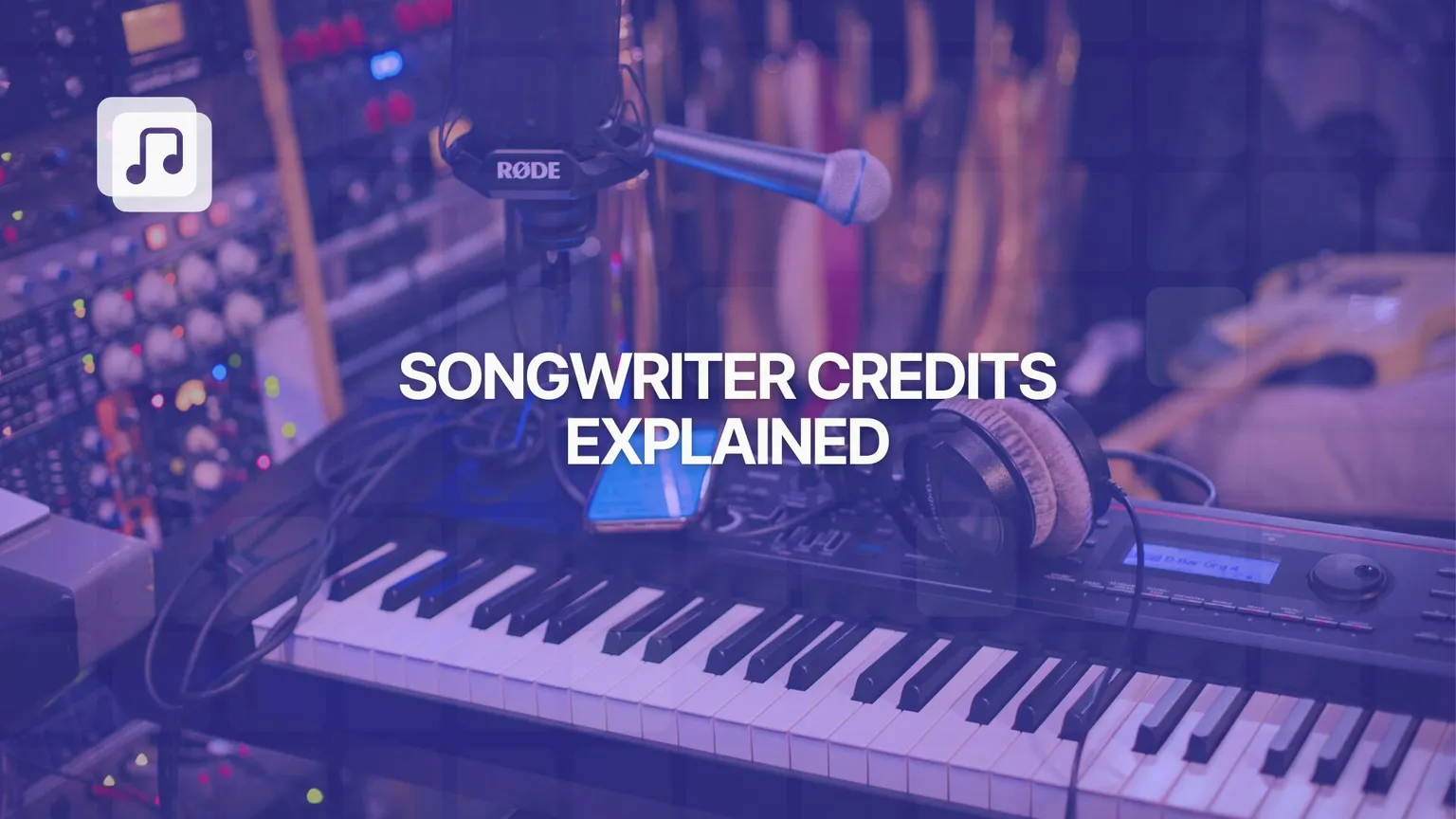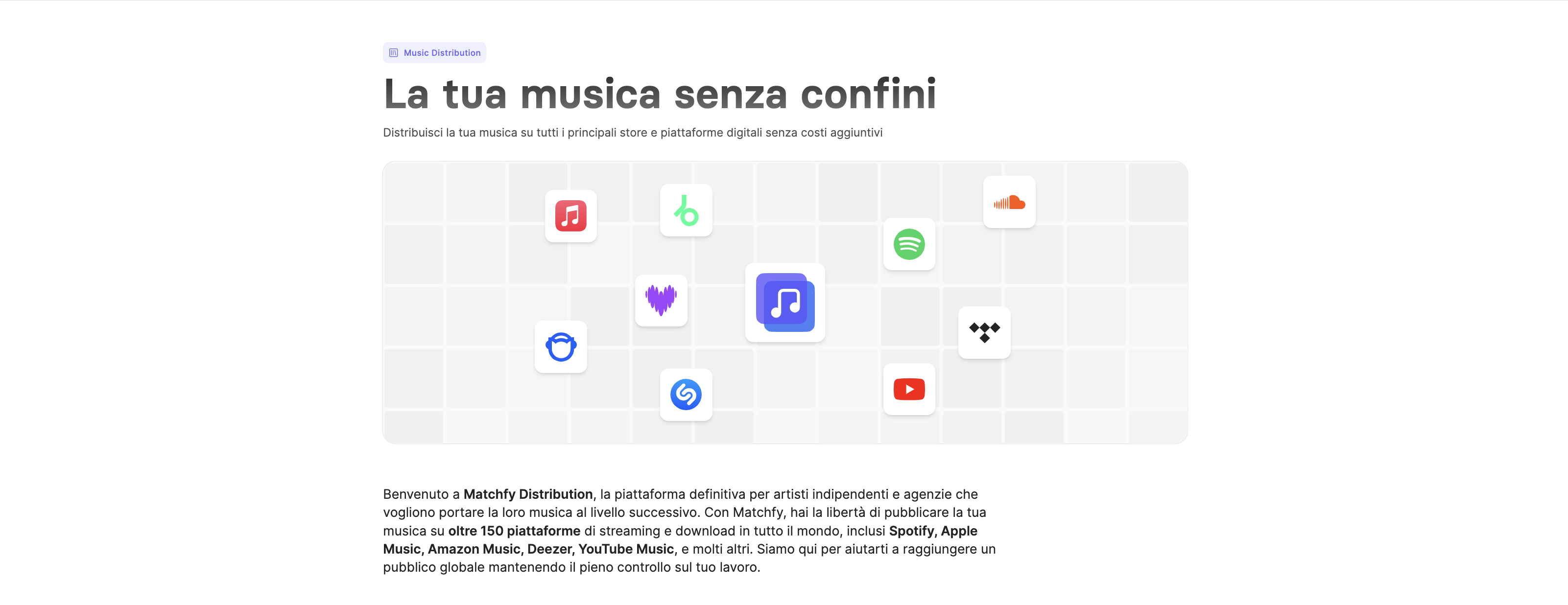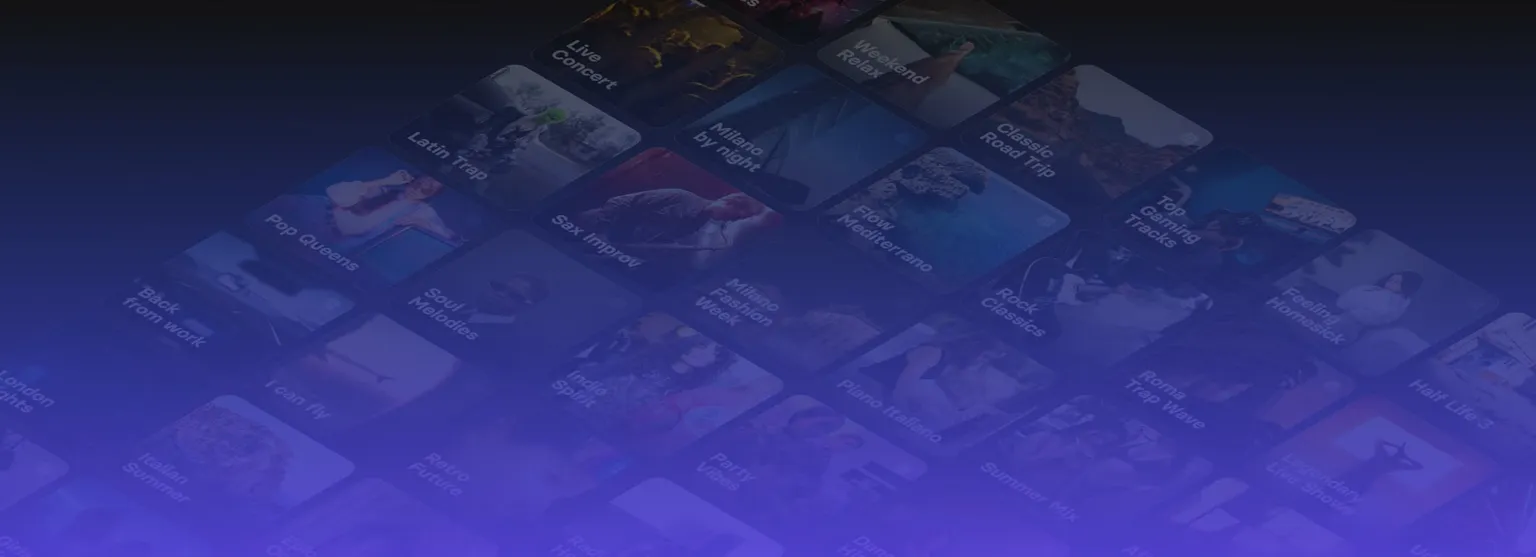Songwriter credits: what they are, how they work and why they matter for every musician

In the music industry, few elements are as important as songwriter credits. Often overlooked by emerging artists, these details are the key to creative recognition, copyright protection, and receiving royalties. But what exactly are songwriter credits? How do you register them properly? And why should every artist care from the very beginning?
In this article, you’ll find everything you need to know about the importance of credits for songwriters, how they’re used by streaming platforms and distributors, and why they’re a vital piece of building a sustainable, professional music career.
Here's what we're going to talk about:
- What are songwriter credits?
- Why songwriter credits are so important for artists
- Metadata and songwriter information: what you need to know
- The role of songwriter credits on streaming platforms
- What happens when songwriter credits are incorrect or missing?
- How to make sure you’re properly credited as a songwriter
What are songwriter credits?
Songwriter credits indicate who contributed to the writing of a song. This includes everyone involved in composing the music and writing the lyrics. These individuals can be:
- Lyricists
- Composers
- Co-writers
- Producers who also helped write the track
- Creative collaborators who deserve recognition
It’s common for songs—especially in pop, hip-hop, or electronic music—to have multiple writers. In these cases, it’s essential to clearly establish who did what, to prevent disputes or confusion later on.
Why songwriter credits are so important for artists
Beyond artistic recognition, credits have legal and financial significance. They indicate who is entitled to receive a share of the revenue generated by a song. This includes:
- Streaming royalties (Spotify, Apple Music, etc.)
- Performance royalties (radio, live shows, TV)
- Sync licensing (films, ads, video games)
- Sales royalties (digital and physical formats)
Whenever a song is played or used commercially, performance rights organizations like ASCAP, BMI, SESAC, PRS, or SIAE collect and distribute royalties based on registered credits.
If a songwriter isn’t properly credited, they may lose all or part of their rightful earnings, and they might not be officially recognized as a creator of the work.

Metadata and songwriter information: what you need to know
Music metadata refers to the digital information embedded in a track. This includes:
- Track title
- Artist name
- Genre
- Release year
- Record label
- Producer name
- Language
- Songwriter and composer credits
Metadata plays a crucial role in helping digital platforms identify and catalog music. If the metadata is incomplete or inaccurate—especially the songwriter data—then the track may not be linked to the correct people, and royalties may not be distributed properly.
Not sure what to do at the start of your music journey? Don’t worry — we’ve created a guide specifically for those who are just beginning their music career. Go check it now by reading the full article on our blog.
The role of songwriter credits on streaming platforms
With the rise of digital streaming, credits have become even more important. Platforms like Spotify, Apple Music, and Amazon Music now include features that allow listeners to see who wrote and produced a track.
This helps shine a light on the creative work behind the scenes and improves transparency in how revenue is shared.
Furthermore, when distributing music through aggregators like CD Baby, TuneCore, or DistroKid, it’s usually mandatory to enter songwriter information during the upload process.
- Streaming services use these credits to:
- Pay out royalties to the correct people
- Store songs correctly in their databases
- Track usage across countries and platforms
- Prevent legal disputes over copyright
You can also distribute your music easily and effectively through Matchfy — but that’s not all. By releasing your tracks via our platform, you keep 95% of the royalties, meaning the majority of your earnings stay in your hands. Plus, if you’ve purchased a plan on Matchfy, you can distribute your music with no additional fees.

What happens when songwriter credits are incorrect or missing?
Unfortunately, it’s not uncommon for credits to be overlooked, entered incorrectly, or skipped entirely. The consequences can be serious:
- Lost royalties: If your name isn’t listed, you won’t get paid—regardless of how much you contributed.
- Legal disputes: Other writers or publishers may claim ownership of your work.
- Lack of recognition: Without credits, it’s harder to build a name in the industry.
Fixing metadata errors after a song has been distributed can be time-consuming and complicated. That’s why it’s critical to enter correct and complete songwriter information from the start.

How to make sure you’re properly credited as a songwriter
To ensure you always get credit for your songwriting contributions, follow these best practices:
- Agree in advance with your collaborators about who wrote what and how royalties will be split.
- Join a performance rights organization (PRO) in your country (like ASCAP, BMI, PRS, or SIAE).
- Double-check your metadata during the distribution process—names, roles, and ownership shares.
- Use trusted platforms like CD Baby that support detailed metadata and royalty tracking.
- Keep written agreements between co-writers, even if you're close friends or part of the same band.
Own your credits, amplify your career
Songwriter credits aren’t just a formality — they’re the foundation of a sustainable music career. From ensuring you receive fair royalties to gain proper recognition for your creative work, accurate credits are essential at every stage of your journey as an artist.
Whether you're just starting out or already releasing tracks, understanding how credits, metadata, and royalties work is crucial. Mistakes in these areas can cost you both money and visibility — two things no artist can afford to lose in today’s music industry.
That’s where Matchfy comes in. Not only does Matchfy help you promote your music across the right playlists, influencers, and audiences, but it also gives you the tools to distribute your music efficiently and transparently. By using Matchfy, you keep 95% of your royalties, and if you’ve already activated a plan, you can distribute your songs with no extra fees — keeping you in control of your music and your income.
Your music deserves to be heard. But just as importantly, you deserve to be credited for creating it. Start your journey the right way — with full recognition, complete control, and a trusted platform by your side.

